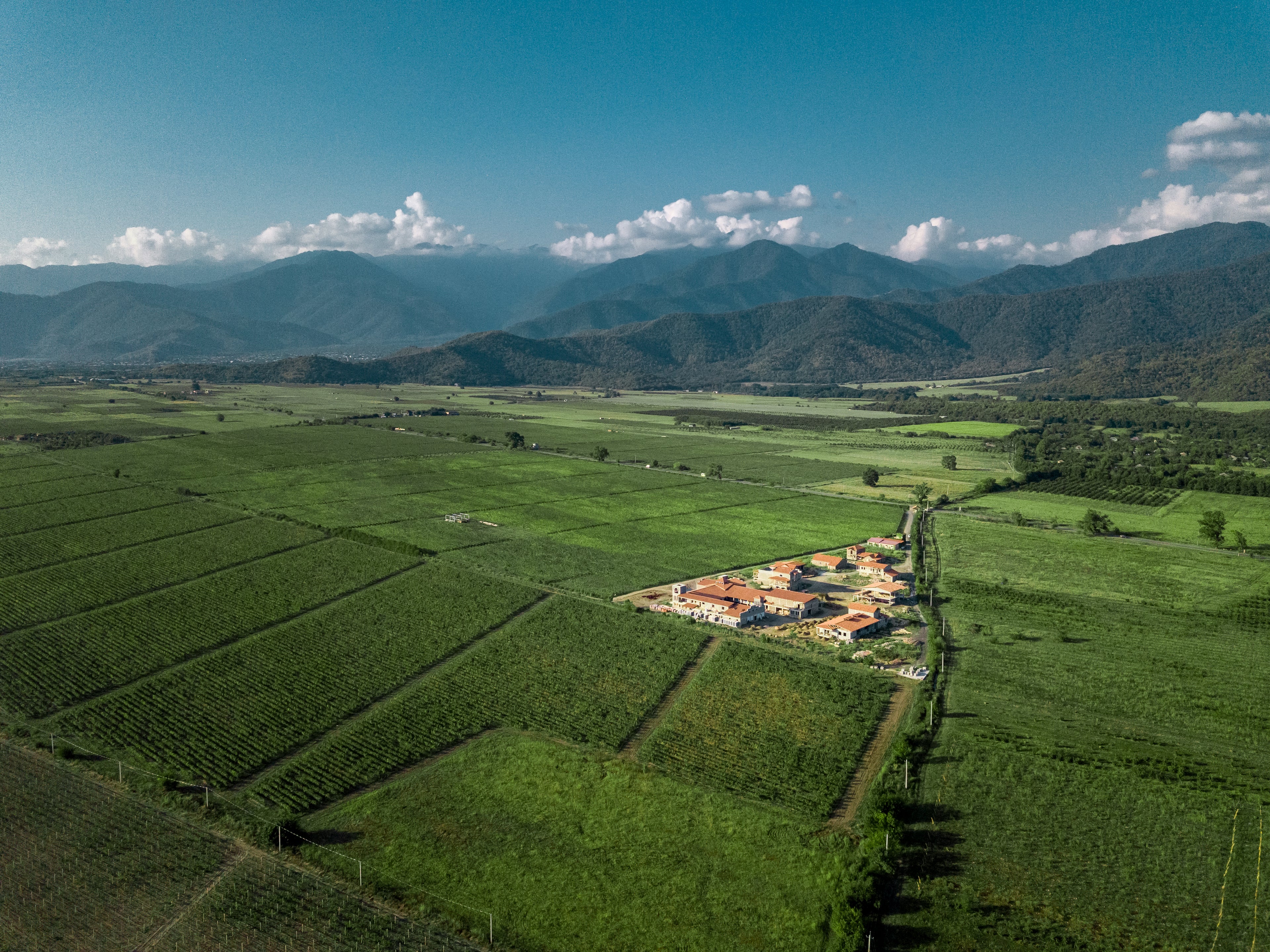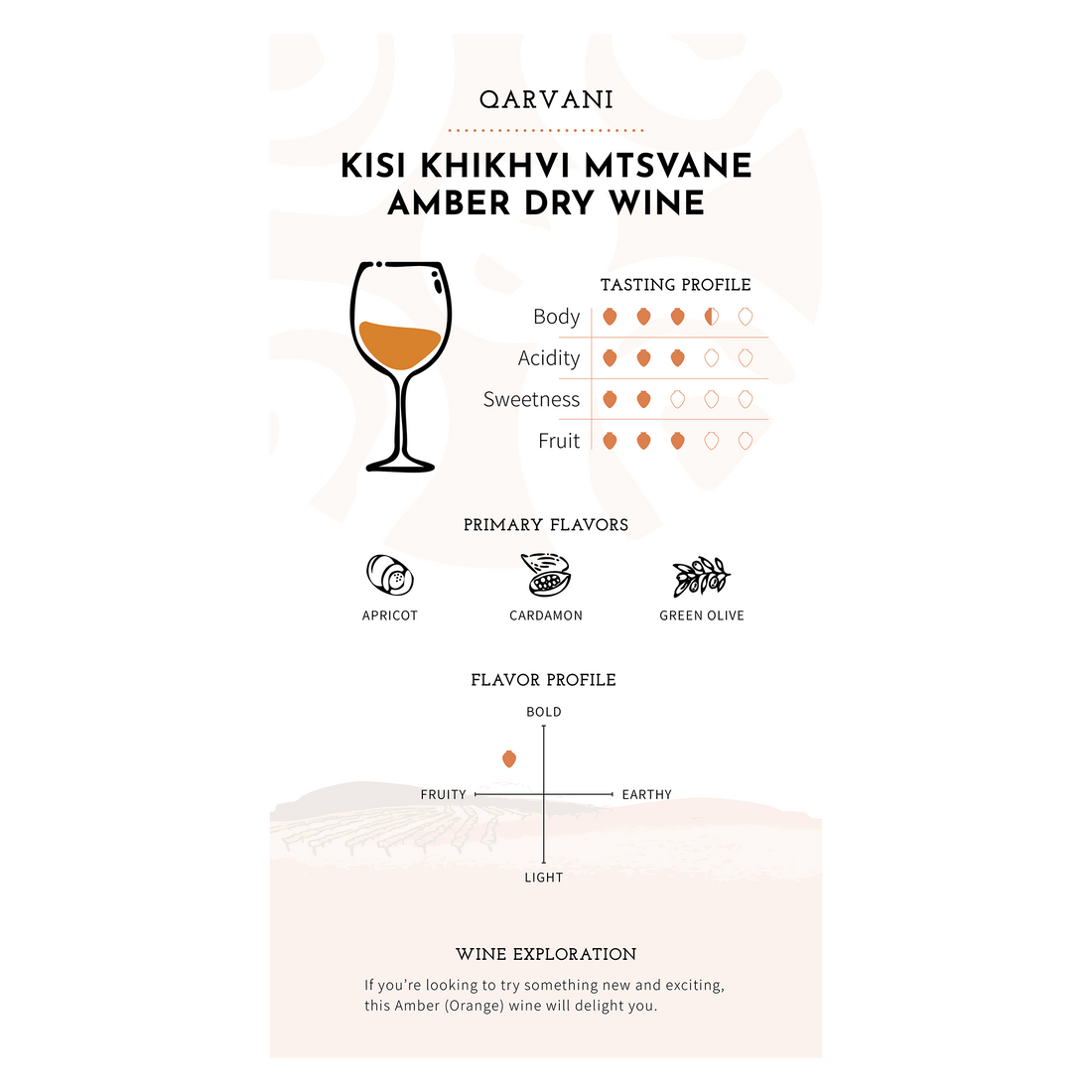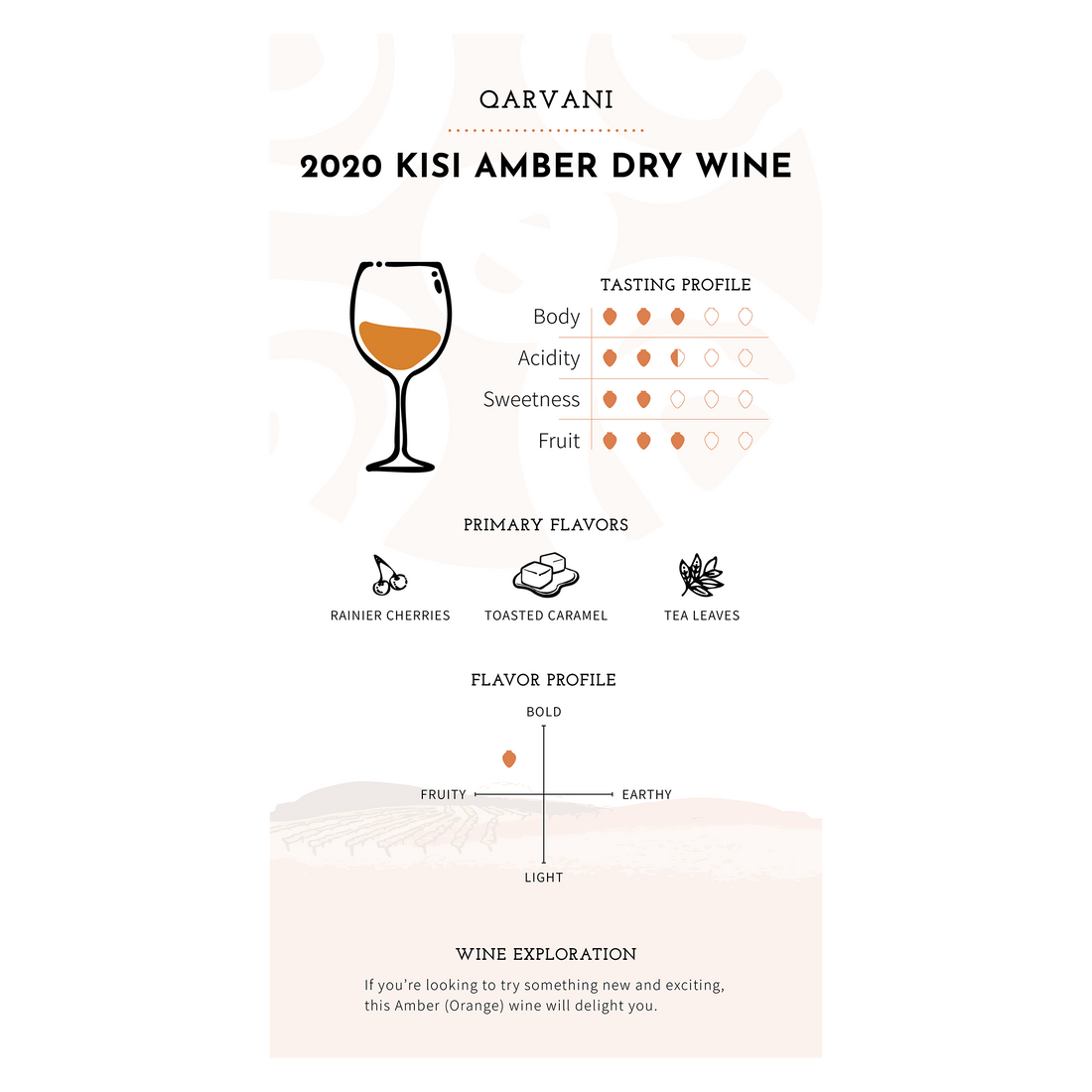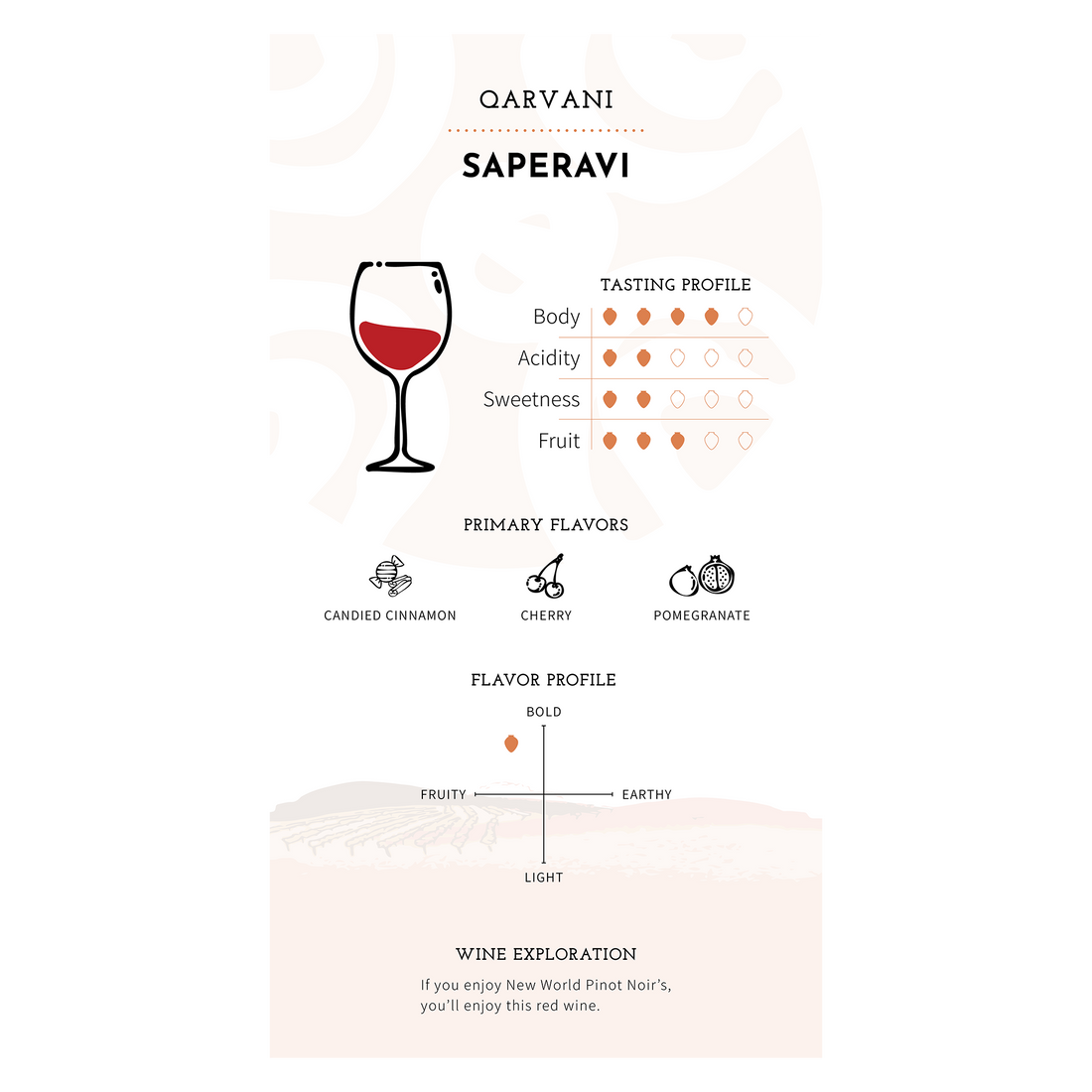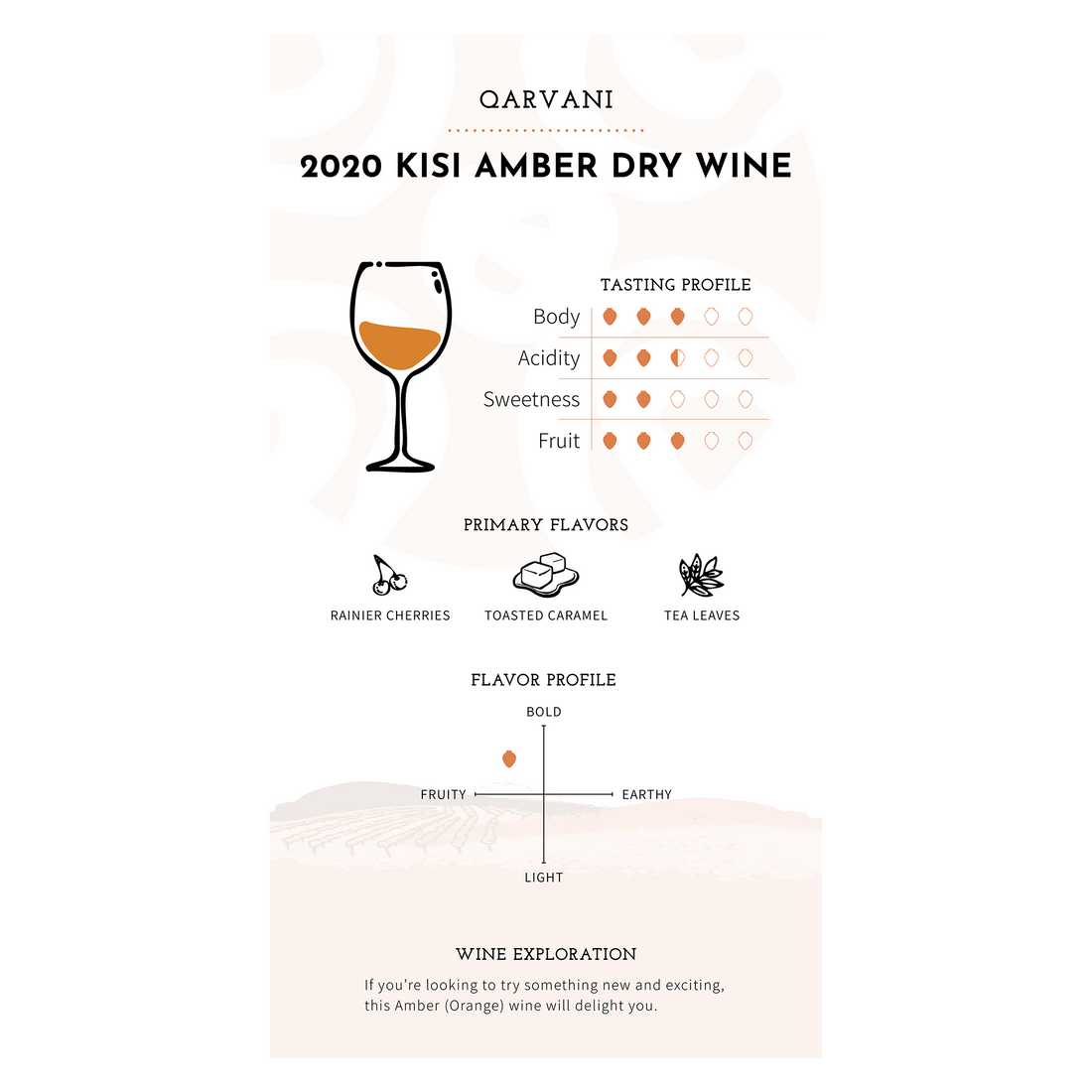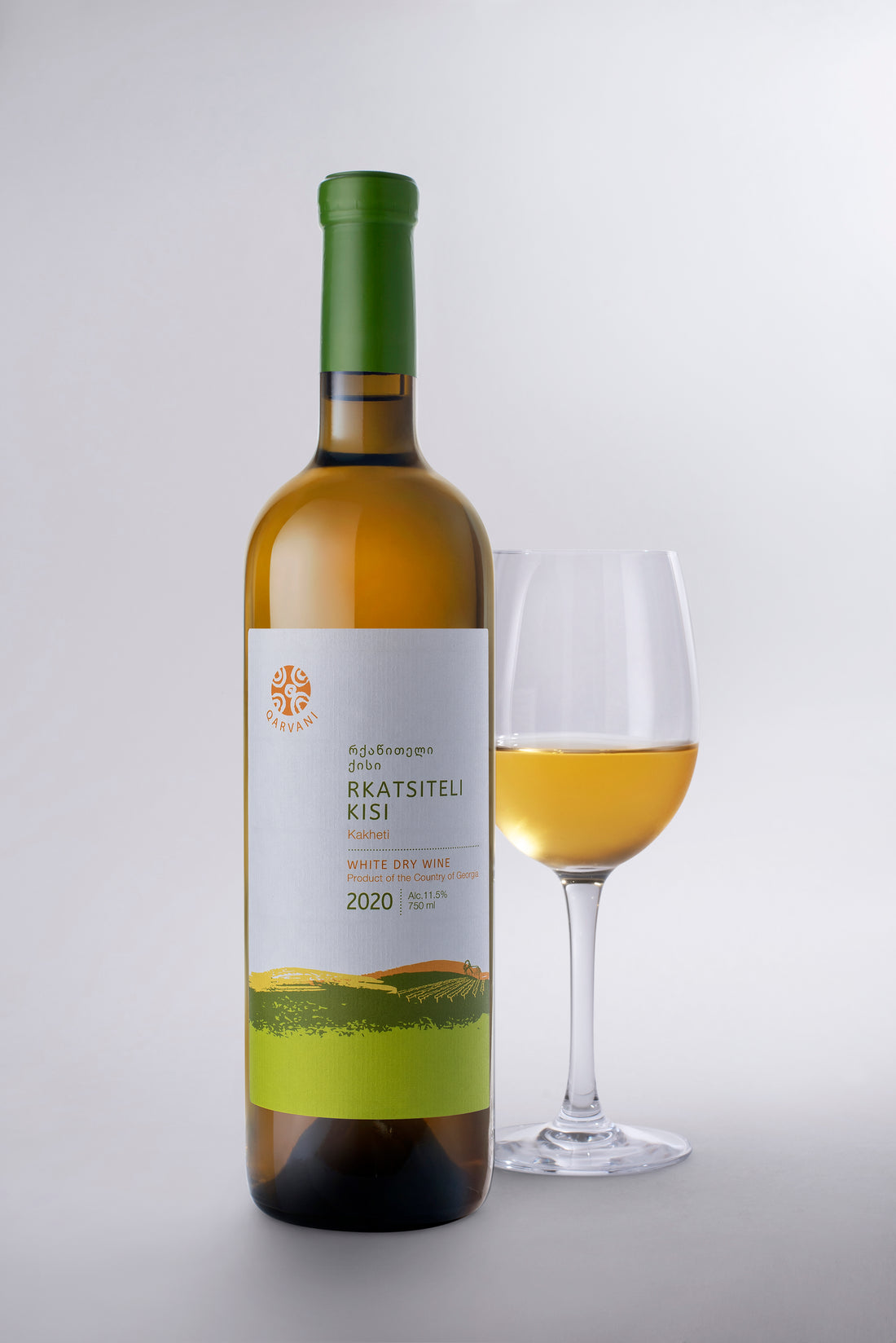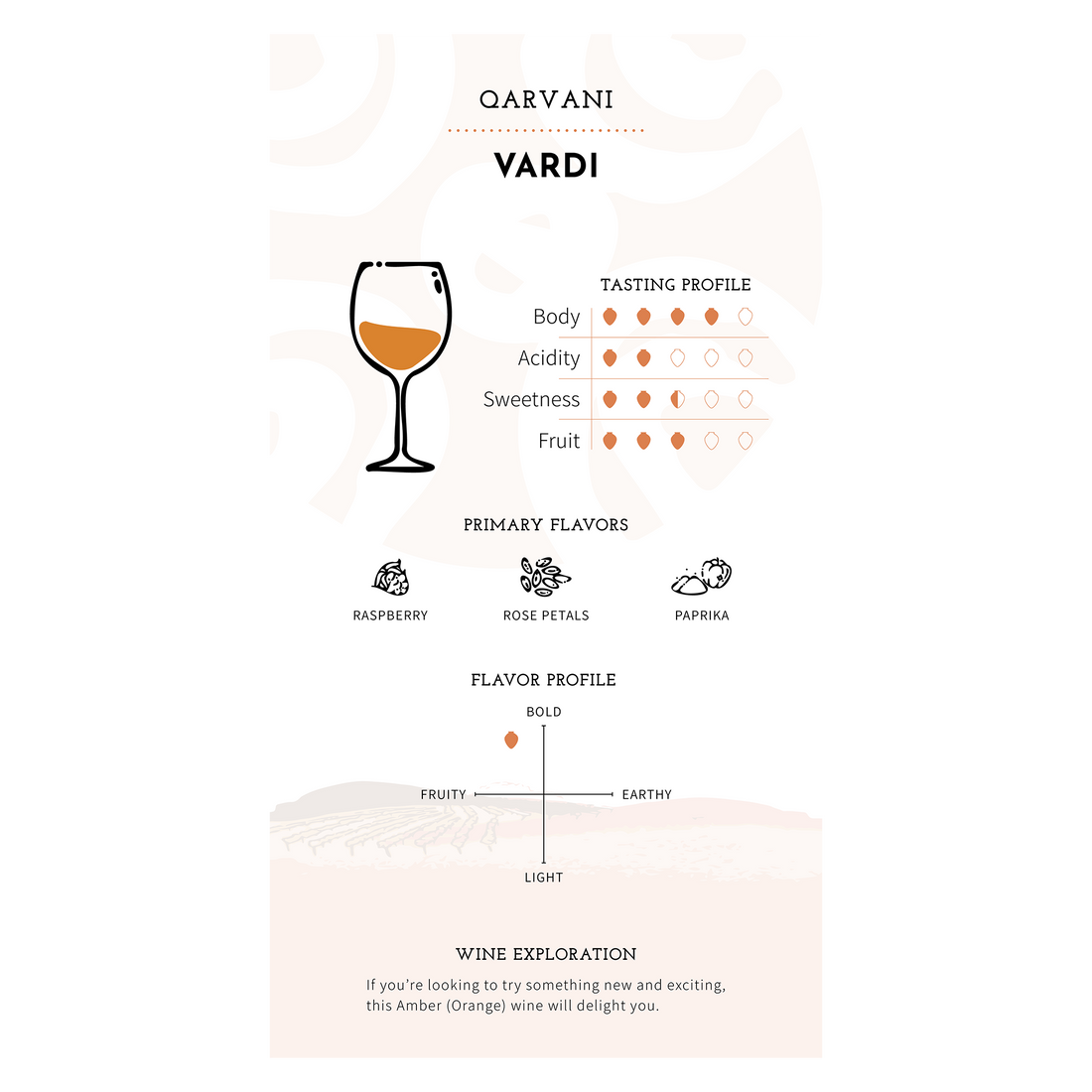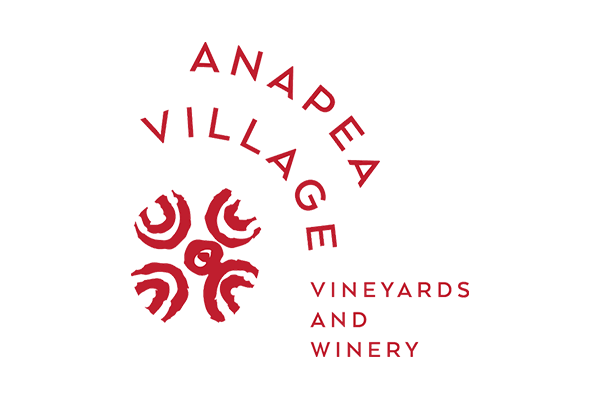
Qarvani wines
In the remote, far-flung Hereti district of Georgia’s Kakheti region, Anapea Village and the Qarvani wine label are fully transforming the way the world thinks about Georgian wine. We’re completely thrilled to be a part of it.
The story starts in 2013, when charismatic and down-to-earth winemaker Khatia Darguashvili and her husband, Gocha, bought a piece of abandoned, uncultivated land outside the tiny town of Kvareli. As the land had been used by the Soviet authorities in the 20th century, its soil was totally exhausted and eroded. They set to work revitalizing it, restoring soil fertility through compost and bio-humus produced on-site, planting ancient Kakhetian varieties and learning traditional, natural winemaking and qvevri use from local elders and families. In 2015, they joined the Georgian Natural Wine Association, committing fully to organic, biodynamic and regenerative practices and strictly minimal intervention in their newly constructed but historically inspired marani (cellar).
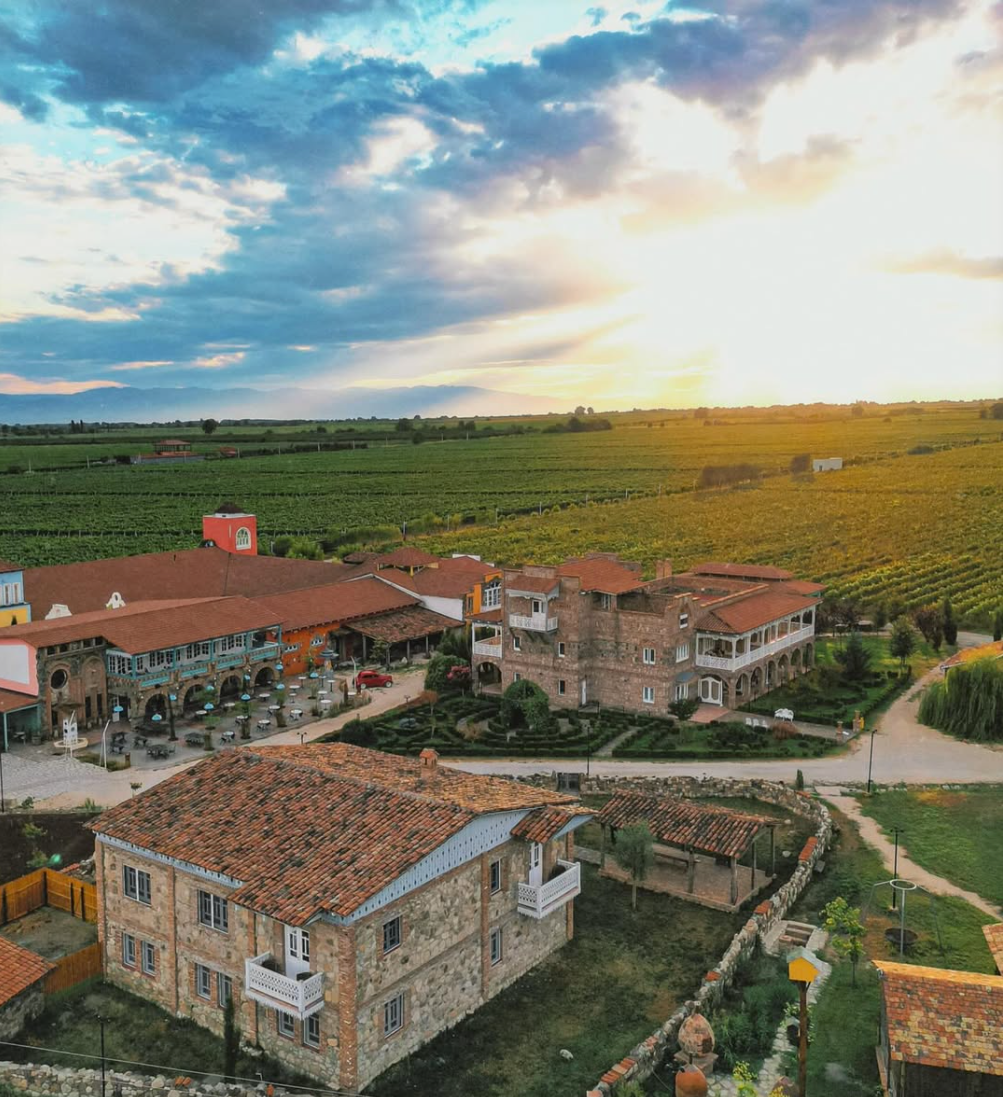
Anapea Village
Perhaps even more impressive than the soulful, vibrant and fresh wines of Qarvani is the “wine village-museum” of Anapea itself, which finally opened after years of careful thought, planning and construction in May of 2025. Khatia and Gocha’s goal was to recreate a village that restores the household activities, lifestyle, viticultural traditions and winemaking techniques of 19th century Kakheti. Their incredible dream, now a reality, takes the notion of a Georgian wine destination resort to a whole new level — both experientially for visitors but also historically and culturally for the country of Georgia, immaculately bringing, as it does, modern amenities into 19th century period living via its accommodations, architecture and arrangement.
It’s important to recognize and give credit to how impossible the extraordinary vision and singular achievement of Anapea Village would have been were it not for the unique combination of fiercely determined, incredibly hard-working, well-connected individuals with the vision, drive (craziness?), and resilience to see it through. Khatia and Gocha did not choose an easy path, but veritably they’ve created an incredible outcome — and a destination as well as wines unlike any others in Georgia… or perhaps the world.
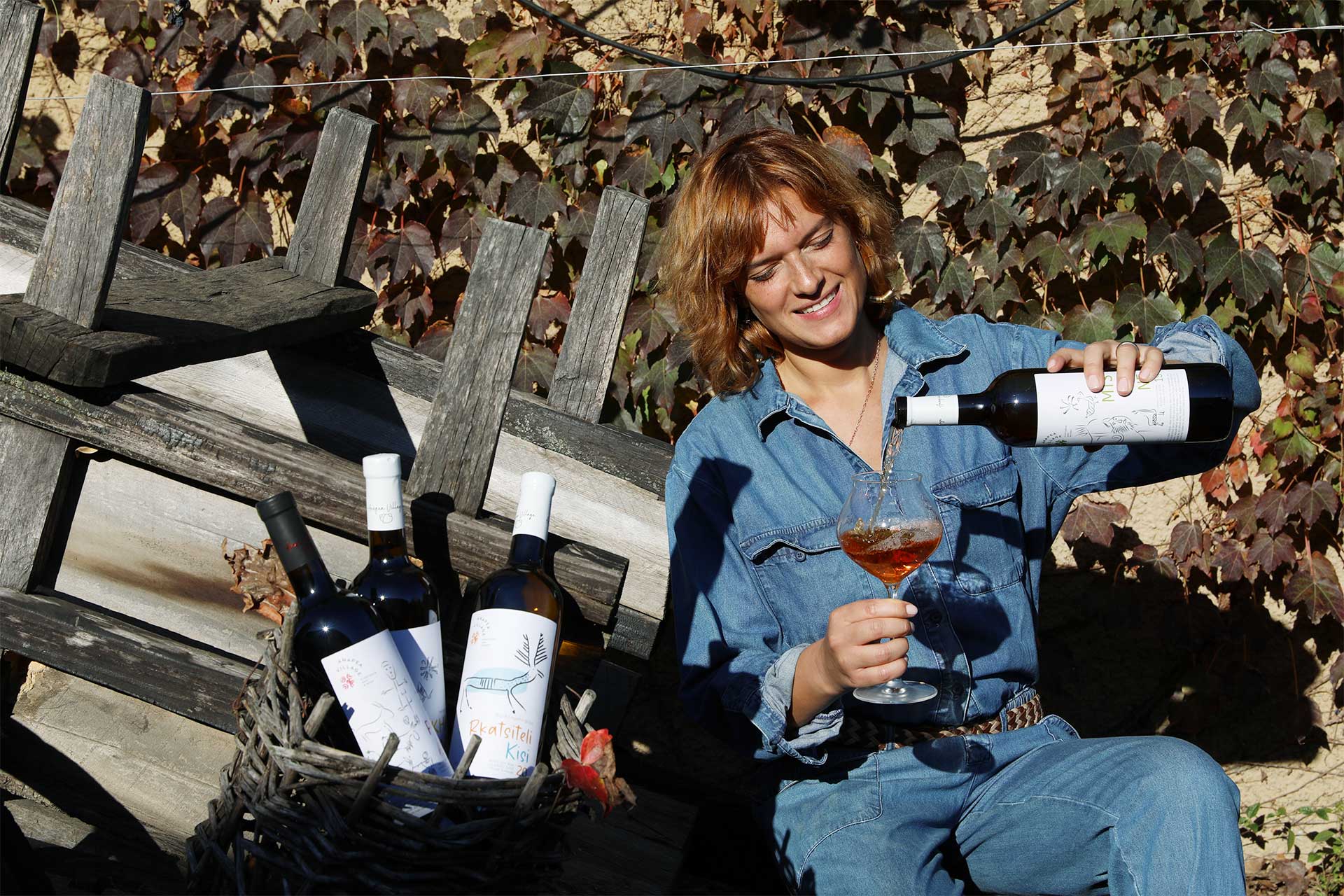
Winemaker
Khatia Darguashvili
Khatia Darguashvili is both the founder and winemaker of Qarvani wines at the Anapea Village winery. She and her husband, who has helped build and establish Anapea, are both degreed sociologists who developed a passion for traditional Georgian winemaking and varieties. They seek to preserve and restore historic Kakhetian wine lifestyle and culture.
Vineyards & Varieties
The majority of vineyards for Qarvani - Anapea village are on site at the Anapea Village in the Hereti district of eastern Georgia’s Kakheti region. There, at around 300 meters’ elevation (~1,000 feet) on alluvial soils over sandstone, they grow exclusively indigenous Georgian varieties: Saperavi, Rkatsiteli, Mtsvane, Khikhvi, Rkatsiteli Vardisperi, Kisi and Mtsvivana. Aside from these core varieties, they cultivate an adjacent vineyard hosting 32 rare varieties that originate exclusively from Eastern Georgia and are used in micro-production for research and development. Organic and biodynamic farming practices are used across the board, and the vineyards are dry-farmed.
Sustainability
The Qarvani - Anapea Village vineyard is 100% dry-farmed and tended using organic farming practices as well as several biodynamic and regenerative techniques. Sheep graze cover crops, ducks and geese reduce tractor use and add natural fertilizer, kids and dogs run between vines lending energy and vigor. Everything is done by hand. In the cellar, absolutely zero fining agents, preservatives, fermentation enhancers or chemical additives are permitted. Every wine is made with full skin contact, in qvevri, severely reducing the need for any sulfur while enhancing tannins and antioxidants as well as an inherent, tangible vitality in the finished wines.
As Khatia explains herself: “Human interference in this process is inadmissible. We get what nature gives us and, judging by the results, nature offers us only the best.”


